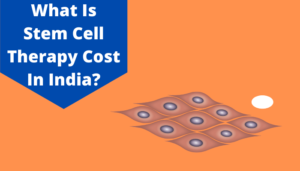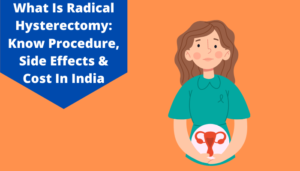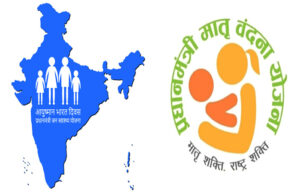Buy Top-up & Super Top-up Plans Health Insurance Online
Top-up Health Insurance Plans
Health insurance is not only essential but it is almost mandatory. It helps stay prepared for health-related uncertainties and unforeseen medical expenses. However, many people underestimate the value of health insurance. They think buying health insurance of one to three lakhs would be sufficient because they might never end up using their health insurance plan. Remember, being underinsured is a significant risk.
With rising medical costs and the incidence of illnesses, having a health insurance plan with a sufficient sum insured is a must. This doesn’t mean one should give away their existing health insurance and buy a new policy with a higher sum insured. There’s a better solution; top-up and super top-up health insurance plans.
Top-up and super top-up plans provide additional coverage. Most reputed health insurance companies offer options for top-up plans. Policyholders can buy top-up plans from their existing insurers too. Top-up plans are also an excellent option to enhance the coverage of an insurance policy. In short, if one is not satisfied with their existing health plan, top-up and super top-ups are an excellent solution to make their insurance portfolio better.
What is the top up plan?
A top-up health plan is an additional coverage beyond the deductible of the policyholder’s existing health insurance plan. A deductible is an amount that is not paid by the insurer, but by the insured. The top-up plan is just like a regular health insurance plan, but it only comes into the picture once the deductible limit is crossed.
Top-up plans allow policyholders to make a single claim when the amount is more than the deductible and the sum insured. It is beneficial when the medical bills overshoot the actual health insurance coverage limits. Top-up health insurance plans reimburse expenses above the base cover only for one single hospitalization.
What is a super top-up plan?
Super top-up health plans are similar to top-up plans except that super top-up plans offer multiple hospitalizations coverage, unlike plain top-up plans which only offer cover for one hospitalization. Super top-up plans consider the total of all medical bills regardless of whether it is a single or multiple hospitalizations. Super top-up comes into play only after the deductible limit is crossed. Super top-up plans are ideal for those policyholders for whom the probability of multiple hospitalizations is high.
Differences between top-up and super top-up
Let’s understand the difference between top-up and super top-up with the help of an illustration. Girish has a general health insurance plan with a cover of Rs 3 lakh.
Case
Incurs hospitalization cost of Rs 6 lakh
Incurs two different hospitalization bills of Rs 2 lakh each
Top-up
Girish buys a top-up plan of Rs 5 lakh with 2 lakh deductible
Base plan with cover Rs 3 lakh and top-up will cover Rs 3 lakh as it exceeds deductible
Base plan will cover 2 lakh towards first hospitalization and Rs 1 lakh towards the second hospitalization. Top-up cover will not kick in because the bill amount is less than the deductible.
Super top-up
Girish buys a super top-up plan of Rs 5 lakh with 3 lakh deductible
Base plan with cover Rs 3 lakh and top-up will cover Rs 3 lakh as it exceeds deductible
Base plan will cover 2 lakh towards first hospitalization and Rs 1 lakh towards the second hospitalization. Super top-up plan will pay the remaining 1 lakh. That is when you experience the advantage.
Key features & benefits of Top-up & Super Top-up Plans
Here are some of the key benefits of these plans summarized.
Cost-effective:
Top-up and super top-up Mediclaim plans are an excellent way to reduce the cost of policies. The deductible feature makes the policy cheaper as the insurer’s liabilities are reduced, and hence the premium is lower for the insured.
Eases financial stress:
Top-up and super top-up plans provide extra cushion to health insurance plans. This ensures policyholders are prepared for a significant amount of medical costs. If the sum insured of an existing health plan is less or seems insufficient, buying a top-up or a super top-up can ease financial stress.
Wide coverage:
Top-up and super top-up plans are just like health insurance plans and provide wide coverage – hospitalization, day-care procedures, pre and post-hospitalization, cashless hospitalization, free health check-up, and organ donor coverage, among others.
Tax benefits:
Like health insurance plans, top-up and super top-up plans offer tax benefits. Policyholders can avail of tax deductions of up to Rs.25,000 to Rs.75,000. This makes top-up insurance a sensible option that has multiple benefits in financial planning.
Customize your plans:
Top-up and super top-up insurance plans are flexible and allow customization to your unique needs. The policyholder can choose the amount of deductible, top-up and sum insured as per their needs and budget.
When do you need a top-up and super top-up plan?
Top-up health plans have a feature called ‘deductible’. It is a pre-decided limit. Top-up insurance kicks in when the cost of a single hospitalization crosses the deductible limit. Top-up plans can be utilized only for single hospitalization cases and only if the cost exceeds the deductible.
Super top-up plans provide coverage over the threshold limit even for multiple claims in the same policy period. All the hospitalizations during a year are put together to calculate the deductible limit. To that extent, the super top-up works exactly like enhanced insurance coverage.
Top-up plans are more beneficial to those who do not have any serious chronic ailments and have a base health plan and require additional coverage just as a back-up in a health emergency. Super top-up plans are beneficial to those who suffer from chronic illnesses and need frequent hospitalization or are exposed to genetic diseases.
Why should you buy a top-up plan?
To beat rising medical costs:
With medical costs rising, top-up plans can help be prepared for any unforeseen extra expenses. Top-up plans are designed to fill the gap between the existing policy and the actual costs. A policyholder can buy additional cover at a reasonable cost to ensure sufficient coverage.
Higher sum insured:
Top-up and super top-up plans are excellent ways to enhance the sum insured value of existing health plans without increasing costs. Having a higher sum insured always helps stay prepared for higher medical bills.
Bigger coverage for senior citizens & parents:
Buying top-up and super top-up plans for senior citizens and parents can help meet high medical expenses related to ailments and increased hospitalization frequencies related to aging.
Saviour on a rainy day:
Top-up and super top-up Mediclaim plans are saviours when there are huge medical expenses. Top-up and super top-up kick in only when the deductibles limit is utilized, and hence they act as an extra cushion.
Lack of benefits in the existing plan:
All health insurance plans are different. Some plans might not have additional benefits. To avail of other benefits, one can buy super top-up or top-up insurance.
Additional Tax saving:
Just like the base health insurance plan, top-up plans also offer tax benefits. Policyholders can avail of tax benefits under Section 80D of the Income Tax Act by buying super top-up and top-up health plans.
What does a Top-up Plan Cover?
Reload of the sum insured:
Top up plans offer to reload or restore the sum insured. When the policyholder makes a claim and uses the sum insured, the insurer automatically reloads or restores the sum insured, which means the policyholder has a financial backup for medical expenses at all times.
Family members covered:
Top-up health plans are available for individuals and also as family floaters. Hence, one can be assured that the family members are also covered at all times.
Room rent expenses:
Top up coverage include room rent expenses. Quite often, room rent can add up to a significant chunk of the hospitalization bills. Having a top-up plan that covers room rent can be beneficial.
Pre & Post Hospitalization:
Top-up coverage includes pre and post-hospitalization expenses. Most often, pre and post hospitalization expenses can add up to a significant sum in hospitalization bills. Having a top-up plan covering these expenses that are often not considered essential can actually be beneficial.
In-patient treatment facilities:
Top-up health insurance offers coverage for in-patient treatments. In-patient treatments could include doctor’s visits, diagnostic tests, surgeries, and more.
Organ donor costs:
Top up Mediclaim plans offer coverage for organ donor costs, including surgeries and organ storage, among other expenses. It is beneficial to buy top-up plans that include organ donor costs as these kinds of treatments are often very expensive.
What does a Super Top-up Plan Cover?
Hospitalization:
Super top-up health insurance policies offer coverage for all hospitalization expenses. Super top-up plan sum insured can be utilized over a consolidated amount of multiple hospitalizations in a year. Hence, it is extremely beneficial for policyholders who have the probability of frequent hospitalization.
Day-care procedures:
Many medical treatments may not require the policyholder to get admitted to the hospital and may require hospitalization for just a few hours. Super top-up cover includes day-care procedure expenses.
Pre-existing illnesses:
Super top-up insurance offers coverage for pre-existing diseases. Typically, pre-existing ailments coverage has a waiting period. Once the waiting period is over, super top-up plans cover the expenses related to these diseases.
ICU room rent:
Patients who need serious treatments must be in intensive care units (ICU). As the quality of service and care level is higher in the ICU, the rent is higher, too. Super top-up plans cover ICU room rent, which can add up to a considerable cost.
Ambulance charges:
Most times when patients have to be taken to and from the hospital lying down or require medical assistance during the journey, they have to hire an ambulance. There are different types of ambulances with different costs. Ambulance charges can significantly increase medical bills. Super top-up plans include ambulance charges in the coverage.
Post hospitalization lump-sum:
Some health insurance super top-up plans offer post-hospitalization lump-sum benefit. Here, the policyholder can choose to claim all the medical expenses at the time of discharge.
Psychiatric illness cover:
Many health insurance super top-up plans cover psychiatric illnesses. The plan covers hospitalization due to trauma that requires psychiatric treatments. This is not covered in most regular health plans.
Bariatric surgery:
Many health insurance super top-up plans cover bariatric surgery for those facing issues with organs due to obesity. However, if the obesity is due to the policyholder’s behavioural eccentricities like eating disorder, hormonal, or other treatable treatments then such conditions might not be covered.
What is not covered in the Mediclaim policy?
Claim made after exhausted deductible
Top-up and super top-up Mediclaim plans do not pay for claims made after exhausted deductible. The policyholder must be aware of the amount that they can legitimately claim and the claim clauses as well as the fine print in the policy.
Pre-existing disease
Pre-existing diseases may not be covered under top-up and super top-up insurance plans. Mediclaim plans have a waiting period for pre-existing conditions as offered by different health insurance companies.
Hospitalization without doctor’s recommendation
Top-up and super top-up plans do not cover hospitalization without doctor’s recommendation. To avail of coverage, the policyholder must have a doctor’s prescription for the treatment.
Pre-natal & post-natal expenses
Top-up and super top-up health insurance plans do not cover pre-natal and post-natal care expenses. Hence, the policyholder must ensure that they go through the policy documents and clauses carefully before signing on the dotted line.
How to file a claim?
Mediclaim claim can be of two types:
1. Cashless claims
2. Reimbursement claims
For both types of claims, health insurers follow set procedures, which have to be completed within a few days to a few weeks of hospitalization. Typically, the process involves informing the insurance company about the medical procedure / emergency within a specified time frame, submitting a claims form and the required documents in original. The insurance company then investigates the documents and post approval it releases the payment.
Cashless claim
A cashless claim is an agreement between the insurer and the network hospitals to allow policyholders treatments without any payments at the time of hospitalization. In this type of claim, the insurer pays directly to the hospital. The policyholder does not have to make the payment and then receive it back as reimbursement from the insurance company.
This process, typically, follows these steps:
1. Get treatment at a hospital part of the network of the insurance policy
2. Submit a health insurance policy claim form at the hospital
3. The insurance company sends an approval to the hospital or raises a query in case of missing or inadequate information
Reimbursement claim
In this type of claim, the policyholder has to first make the payment to the hospital, which is then reimbursed by the insurer upon following the reimbursement process, as under:
1. The policyholder is required to fill a claims form and submit to the insurer along with the medical and hospital bills
2. The insurer then investigates the documents
3. If the claim is approved, the insurance company sends an approval letter. In case of rejection, a rejection letter with reasons is sent to the policyholder.
Key benefits of super top-up plan
Wide range of sum insured
Cashless hospitalization possible
COVID-19 coverage
Copayment feature available
Customization possible
Deductible can be customized
Easy digital process
Easy claim process
Additional tax benefits
Wide coverage
Best top-up and super top-up plans from IIFL
HDFC Ergo My Health Medisure Super Top Up
- Personal and family floater
- In patient hospitalization
- Pre and post hospitalization
- Day-care procedures
- 24/7 customer service and assistance
- App-based digital processes
- Wide network hospital
Manipal Cigna ProHealth Protect
- Sum insured Rs.3 lakhs to Rs.30 lakhs
- Cashless treatment
- Cumulative bonus benefits
- Wide network hospital
- Easy digital process
- Tax benefits
- Available for individual, family, and multi-individual
ICICI Health Booster
- Sum insured reset to 100%
- Easy claim service
- Tax benefits
- Wide network hospital
- Flexible sum insured and deductible
- Cashless hospitalization
- Reward for fitness
Star Health Super Surplus
Top Up
- Affordable premium
- No pre-policy medical test
- Maternity cover
- Air ambulance
- Organ donor expenses
- Available in Silver and Gold variants of plans
Religare Health insurance
Top Up Plan (Care Insurance)
- Deductible: 1 lakh to 10 lakhs
- Sum insured: 1 lakh to 30 lakhs
- In patient care up to sum insured
- Free health check up
- Organ donor charges covered
- Wide network hospital
Types of Best Health Insurance Plans in India
FAQ
Q. How does Super Top-up Health Insurance work?
A. Super top-up health plans are similar to top-up plans except that super top-up plans offer coverage for multiple hospitalizations in a single year. Super top-up plans consider the total of all medical bills regardless of whether it is single or multiple hospitalizations. Super top up comes into play only after the deductible limit is crossed. Super top up plans are ideal for those policyholders for whom the probability of multiple hospitalization is high.
Q. What is the difference between a regular top-up and super top-up plan?
A. The main difference between a regular top-up plan and super top-up plan is that a top-up plan covers only a single claim while super top-up covers multiple hospitalization claims in a year. Here’s an example: If you have a top up plan with a deductible of Rs 3 lakhs and if you have two claims of Rs 2 lakhs each in the same year, then your top up plan will not cover it because the single claim doesn’t cross Rs 3 lakhs. But a super top-up plan will cover it.
Q. What do you mean by deductible in a super top-up health plan?
A. A deductible is an amount which has to be paid either by the policyholder or the insurer before the super top-up plan kicks in. Here’s an example: if you have a top-up or super top-up plan of Rs 2 lakhs as the deductible, and Rs 10 lakhs as the sum insured, and if you have a claim of Rs 3 lakhs in a year then the super top-up plan will pay for the 1 lakh above the deductible.
Q. Who is eligible to buy a top-up plan?
A. Top-up plans can be bought by anyone who is between the age of 18 and 65 years. There are no restrictions as long as you are willing to pay the additional premium.
Q. How will Super top-up plan benefit my family?
A. Super top-up plans are beneficial to families to meet the rising medical expenses. Moreover, super top-up plans allow multiple claims in a year, which means that it provides more protection and coverage for multiple claims.
Q. What should I opt for Top-up or a Super Top-up Plan?
A. Both, top-up and super top-up plans have benefits. These plans help ease financial worries related to medical expenses. However, compared to top-up plans, super top-up plans offer coverage for multiple claims in a year, which means they cover more number of medical expenses. Hence, super top-up has more benefits. However, if the probability of a person getting hospitalized is less or limited to once a year, top-up plans would work well.
Q. How does this plan boost my sum insured?
A. Super top-up policies function on the concept that they come into the picture only when the deductible amount limit has been crossed. This means that if you have an existing health insurance plan of Rs 5 lakhs and a super top-up plan of Rs 10 lakhs, your total sum insured is Rs 15 lakhs. Super top-up and top-up plans are an excellent way to enhance sum insured when you already have a base cover in place.
Q. What are the factors that will affect my Top-up Health Insurance Premium?
A. Many factors affect health insurance premium cost such as age, location, sum insured, deductible amount, health condition of the policyholder etc.
Q. Is there a specific limit to the Top-up Plan or it is an add-on?
A: Typically, top-up plans are in the range of Rs 50,000 to Rs 15 lakhs. Most health insurance companies offer top-up plans based on limits set by them.
Q. Does this plan provide coverage for accidents also?
A: Yes, top-up and super top-up plans provide insurance coverage for hospitalization due to accidents too.











